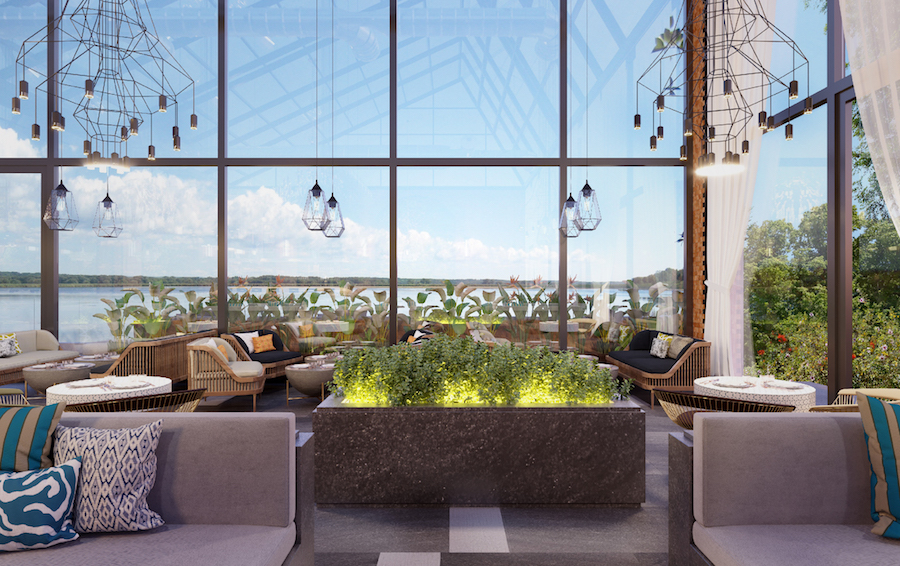
I was listening to one of my go-to podcasts the other day, ‘Happier in Hollywood’. The hosts are TV writers and producers. They are currently working from a Hotel in Puerto Rico, where their remake of ‘Fantasy Island’ is being filmed
My ears perked up when they mentioned their recent experiences with WFH, ‘Working from …Hotel’. The hosts shared and compared their must-haves, nice-to-haves, and personal tips for working far away from home, where their home base is a Hotel room for extended periods at a time.
“We thought we were experts after four months of working from a Hotel in Puerto Rico. But this trip, we’re actually, in a way learning even more about what we need”.
Since we at Telkonet are all about guest comfort and guest experience I thought it would be worth sharing some of their comments.
Amenities Outweigh Luxury
“There are a lot of little amenity differences that can make a big impact on your stay”, they explained. What they realized was that the proximity of restaurants to their Hotel did not matter because they were working, hardly left the Hotel, and ate most of their meals in-house. So having free breakfast, and food service available at the hours they needed, was far more important than having a restaurant within walking distance of the Hotel. “What matters to us is, is there food available in the Hotel at the hours we need, and is decent because that’s where we’re going to eat 90% of our meals”.
They also appreciated that the Hotel had a meeting place, in this case, a rooftop bar, to be able to unwind, discuss the next day’s agenda, and meet with other collaborators. “Last night we had drinks with our two guest actors for ‘Episode One’ who have not been announced. So they’re still very secret, but we’re very excited to be having drinks with them at a rooftop bar that was outside. So again, it felt safe [in terms of COVID] and had amazing views. Yes, a good socializing spot-bar or no bar-but a good socializing spot”.
Robust Wi-Fi
“Good, reliable Wi-Fi is so essential. And so many places don’t have it. We have gotten mad trying to complete things that had deadlines that needed to go out moving from location to location, trying to get good Wi-Fi. It’s something that really needs to be seamless”.
A Big Win That Doesn’t Cost a Thing
Sometimes ‘guest comfort’ manifests itself in unusual requests. Whether your guests are writing partners or any other type of business collaborators, they may prefer to be given guest rooms in close proximity to one another, as these podcast hosts do. They prefer rooms on the same floor, for the sake of convenience. “Even though it doesn’t seem like a big deal like oh, what if we were two floors apart and you just have to take an elevator two floors up or two floors down, the truth is that it’s just easier, like if I realized, ‘Oh, I forgot my charger’ it’s just so much easier to just quickly be able to go back and forth. And so that’s something in the past we’ve kind of just let it happen as it happens, but I think we’re gonna really make a point of being on the same floor”.
Invisible Comfort
We’d like to add a benefit that happens behind the scenes, that these podcasters might not be aware of but contribute greatly to their comfort: Occupancy-Based Thermostats instead of Time-of-Day Thermostats. Thermostats with built-in occupancy sensors calibrated to extreme sensitivity will keep the guest room cool during hot, sun-drenched Puerto Rican days. With outdated time-of-day thermostats, hoteliers may set room temperature based on a false assumption that guests are tourists out …touring.
Invisible Energy Savings
Another feature that saves energy and does not negatively impact the guest experience is the use of door contacts with a “lanai” setting. Installed as a magnet and sensor, they detect when the patio door is left open. The property can act on this in a few ways. One way is to shut off the air conditioning until the door is closed. It can, add a message to the thermostat, issue an alarm to the facilities staff, or any combination thereof. For VIP guests, keeping the a/c on but issuing an alert to facilities to shut the door upon checkout might be the best solution.
Whether the guest is aware of the Hotel amenities or not, amenities can vastly change their experience both in terms of their comfort level and their work efficiency.
